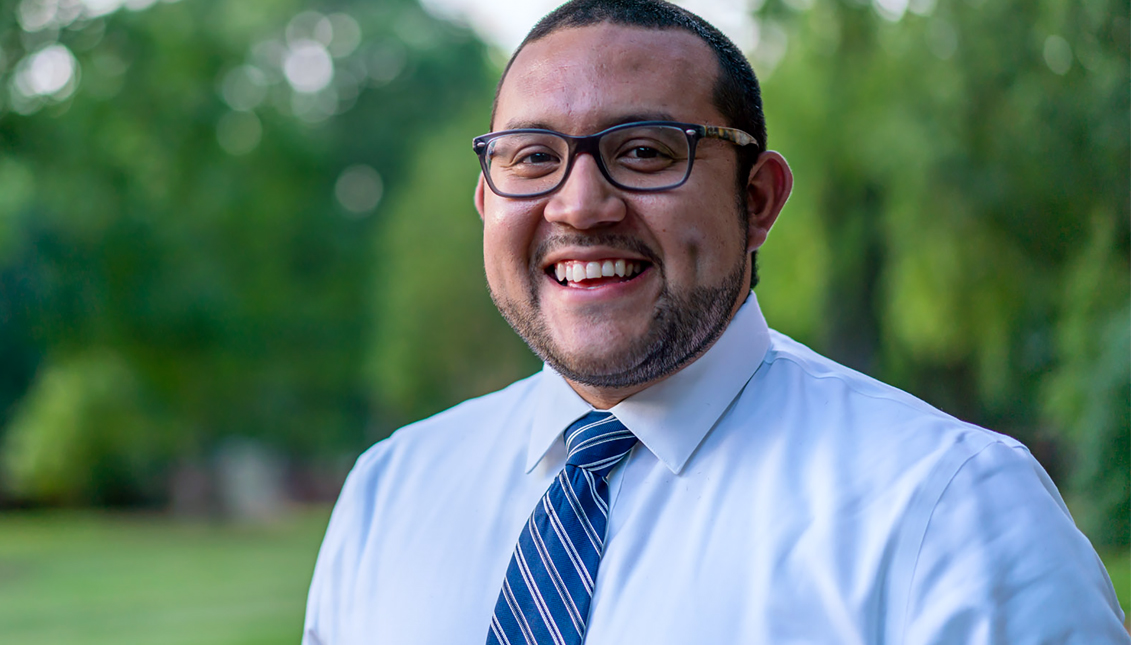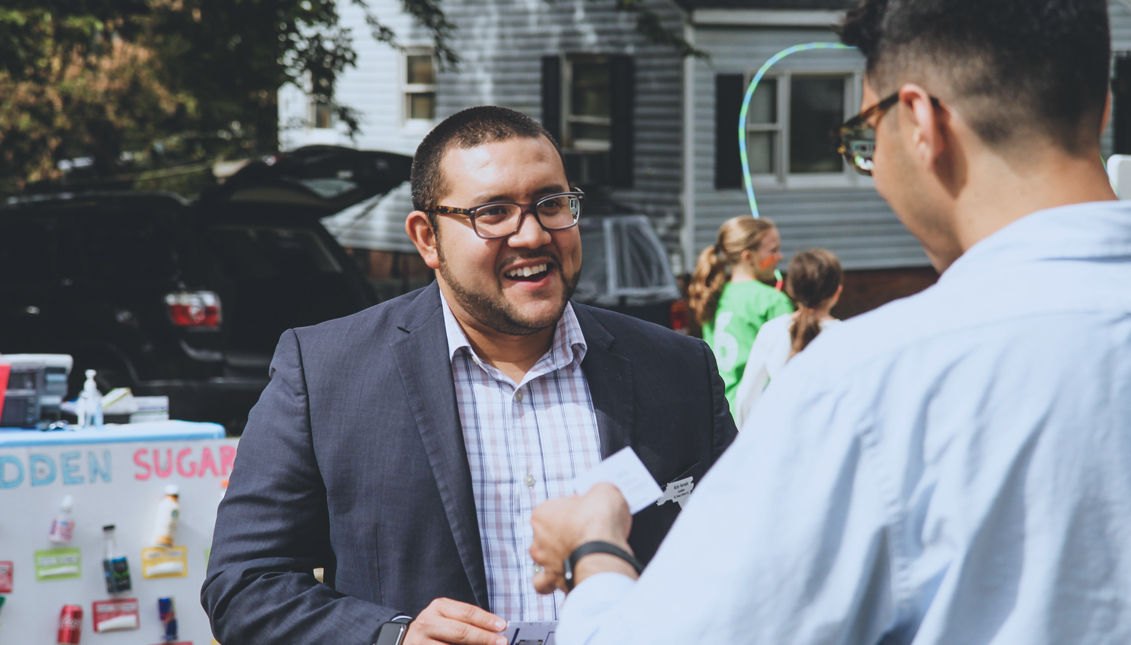
A New Force in North Carolina
Rep. Ricky Hurtado may be the first Latino in North Carolina’s State House, but it’s about more than making history.
Rep. Ricky Hurtado (NC-63) sees hope in the change wrought in the 2020 elections with the emergence of Latino politicians, himself included, as the first Latino to serve in the North Carolina House.
However, his optimism is tinged with caution after the nation witnessed the unthinkable on Jan. 6.
“It really sort of makes it clear that we’re living in a historical moment and this is very much a crossroads, not just for Washington D.C. but for the nation,” Hurtado told AL DÍA.
“It really sort of makes it clear that we’re living in a historical moment and this is very much a crossroads, not just for Washington D.C. but for the nation,” Hurtado told AL DÍA
Representing Alamance County in rural, suburban North Carolina, Hurtado compared the tensions at the Capitol to what he has witnessed in municipalities across the country.
“It’s folks who are struggling with combating misinformation, white supremacists who are finding solace in right-wing extremism, and it’s people who are really grappling with the changes happening across our country,” he said. “It’s tough because you’re hopeful.”
As a newly-elected State representative, Hurtado said it’s up to him to make sure that his local community finds a way to have a dialogue and move forward.

The importance of Hurtado’s election was never lost on him, but it was not the driving motivation for running for office.
Whether it was becoming the first person in his family to go to college, or the first person to get his master’s degree from an Ivy League institution, Hurtado’s life has been about overcoming the many “firsts” in his family and navigating the setbacks.
“All my life I’ve been told ‘you’re too young,’ or ‘people like you don’t make it in those positions,’ or ‘it’s really hard and you should consider something else,’ and so I tend not to listen to folks who say stuff like that,” Hurtado said.
What was paramount to Hurtado was what having a voice from a working-class community would mean to a place like North Carolina.
“And I think that’s what got me really excited, that we can see someone that grew up similar to a lot of people in North Carolina and really be able to say to them: There’s more than unites us than divides us,” he said.
It was never about making history— becoming the first Latino to serve in the North Carolina House — and Hurtado made that clear.
“Sure, my ‘historic’ election will make me the first Latino Democrat to ever serve in the General Assembly, but at the same time, you can see a lot of your own life experiences reflected in my family,” he said.

Hurtado’s family is deeply connected to the growing Latino population in North Carolina, which constitutes 15% of the Alamance County population.
“I think you see the footprint of the community really widely across the community,” Hurtado said. “When you drive through the heart of my district, you see Latino businesses, you know, grocery stores and a really vibrant community that’s really entrepreneurial in nature.”
He explained that for the past 20-30 years, Alamance County has been transforming, with a people that want to leave behind a legacy.
It is very much their home.
“I work in education, and I often tell [my students] that you know, ‘somos de aqui, y de alla’,” said Hurtado. “A lot of people try to tell us, ‘no somos de aqui o de alla,’ but we’re both southerners, but also of Latin American descent, children of immigrants or immigrants ourselves. But I tell them, ‘no, no that’s not true.’”
Hurtado’s parents fled El Salvador’s bloody civil war, financed by Washington, in the 1980s.
Hurtado was born in Los Angeles and moved to North Carolina at a young age.
“I speak with a bit of a Southern twang... I speak broken Spanglish, because that’s how we do, that’s how we grew up,” he said. “And I think that for me that’s the part that makes the most sense because it means that we’re creating, and we’re fighting for that inclusive, equitable vision of what we want in our community.”

Hurtado’s grassroots, people-first campaign stood out. Not merely because he ended up winning, but because the approach his campaign took to reach the vote in all communities could be used as a blueprint for others.
Too often campaigns fail to mobilize their would-be constituents because they do not consider a grassroots approach. In Hurtado’s case, it proved highly effective in communicating his message — and his humanity.
It was about meeting people where they are, and not expecting the people’s issues to reach him via some other means.
“I think that politics has lost a lot of that, in terms of recognizing that there’s a huge gap in trust that’s built between elected officials and the community. And people who really aren’t rooted in the challenges that communities face, people that are really disconnected from the reality of so many working families,” Hurtado said.
His campaign ventured into the community, asking people what they needed. Hurtado explained that these needs varied from additional PPE resources to assisting food banks and community centers.
He knocked on doors and even helped pick up food to take to apartments for people in need.
It was a very hands-on approach, but it made a difference to the community.
“Finally — in a place that had such a reputation like Alamance county, where we’ve had challenges from anti-immigrant policies, where we’ve sort of seen a movement for racial justice really take root at the heart of our district. People saw hope in seeing something different, and someone who was really conveying a message of pushing our community in a new direction,” he said.
But no matter how much hands-on community involvement Hurtgado set out to do, he couldn’t reach everyone.
RELATED CONTENT
“There are 77,000 people in our district, and no matter how many phone calls you make, and no matter how much effort you invest in community engagement, there are so many factors that are beyond your control,” he said.
There are people who were already in financial trouble before the pandemic and have historically struggled with accessing resources like unemployment checks.
The pandemic only intensified these difficulties. One of the hardest parts, Hurtado said, was listening to the issues first-hand on the phone, and realizing that real, equitable reform is the only way to help in the long-term.
“Folks who are really hurting when it comes to not being able to pay rent or utilities on time. So I think hearing the pain on the other side of that phone call or in that visit really created a sense of urgency for me because I knew that one person alone can’t solve this, even with a single election,” he said.
Even before he was a candidate running for office, grassroots mobilization and community engagement were very much at the heart of everything Hurtado set out to do.
“A lot of the work that I do revolves around education, and so advocating for tuition equity for DACA students, thinking about education funding for under-resourced schools in rural North Carolina,” said Hurtado.
For him, tackling teacher diversity in early childhood education can be approached very much like a grassroots campaign — by raising awareness, engaging the community, and listening to first-hand accounts of lack of diversity.
“A lot of that for me was bringing our communities together to talk about our common challenges and creating a plan on how we move forward together,” he said.
“A lot of that for me was bringing our communities together to talk about our common challenges and creating a plan on how we move forward together,” he said.
Hurtado said he brought a lot of the methods he learned after years of education advocacy to his campaign.
“To make sure that we’re connecting and building relationships with people and really focusing on the trust part of it all to make sure that we were creating the types of connections needed in the community to be successful,” he said.

Along with his legislative position, Hurtado will continue to teach at the University of North Carolina Chapel Hill, as well as run his educational non-profit LatinxEd to support first-generation college students get access to opportunities in North Carolina — primarily Latino first-generation students like himself.
His nonprofit primarily works with Latino or immigrant families.
Between being a State Rep, a University instructor, Non-profit organizer, and mobilizer, it’s a lot, to say the least, but it’s necessary. North Carolina State Legislators make just $14,000 a year.
“It’s technically a part-time gig, even though we do full-time work for it. And so some people either have to be independently wealthy or figure out a way to make it work. And so that’s one of the barriers to participation. People like me typically don’t run because it’s expensive, and people can’t really sacrifice their livelihood to do it.” Hurtado explained.
He has little time to dwell on that because Hurtado is ready to work for his constituents.
First on his agenda is COVID-19 relief, vaccine distribution, and making sure the process is equitable, especially due to “concerns about historically marginalized communities such as Black and Latino communities,” Hurtado said.
On Feb. 4, Hurtado marked his first vote as a Member of the North Carolina House of Representatives, voting yes for COVID-19 relief to aid his constituents, specifically to fund rental assistance and public schools.
“There is a lot of work left to do,” Hurtado wrote on Twitter, “But this is a good start.”
“There is a lot of work left to do,” Hurtado wrote on Twitter, “But this is a good start.”











LEAVE A COMMENT:
Join the discussion! Leave a comment.